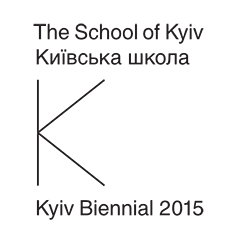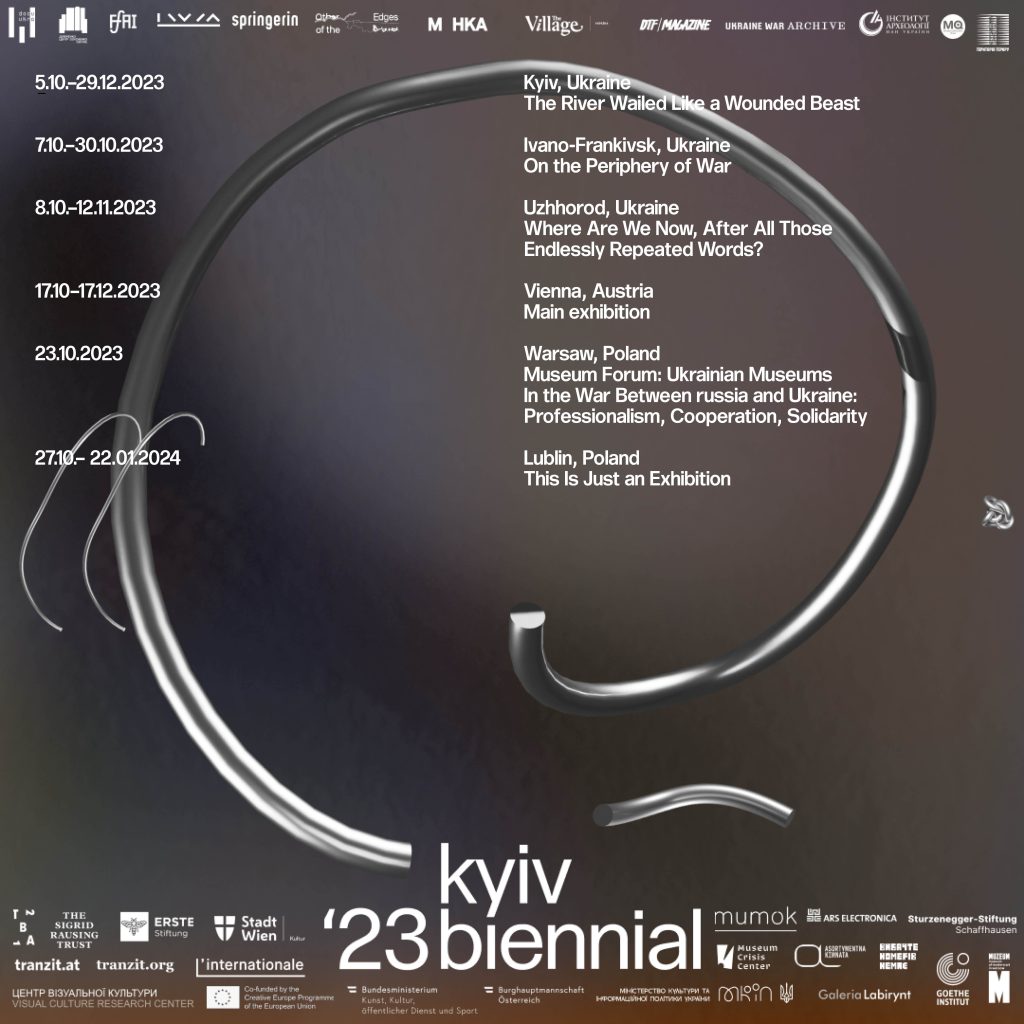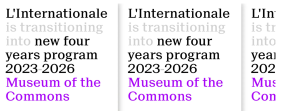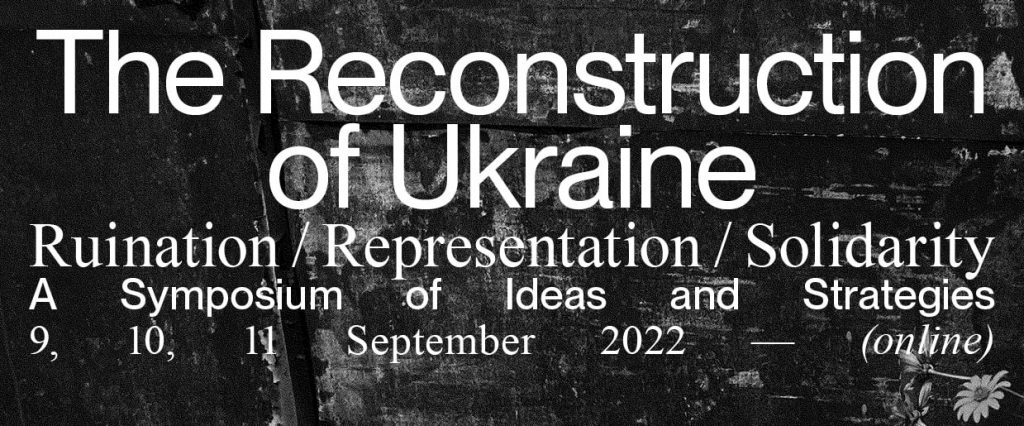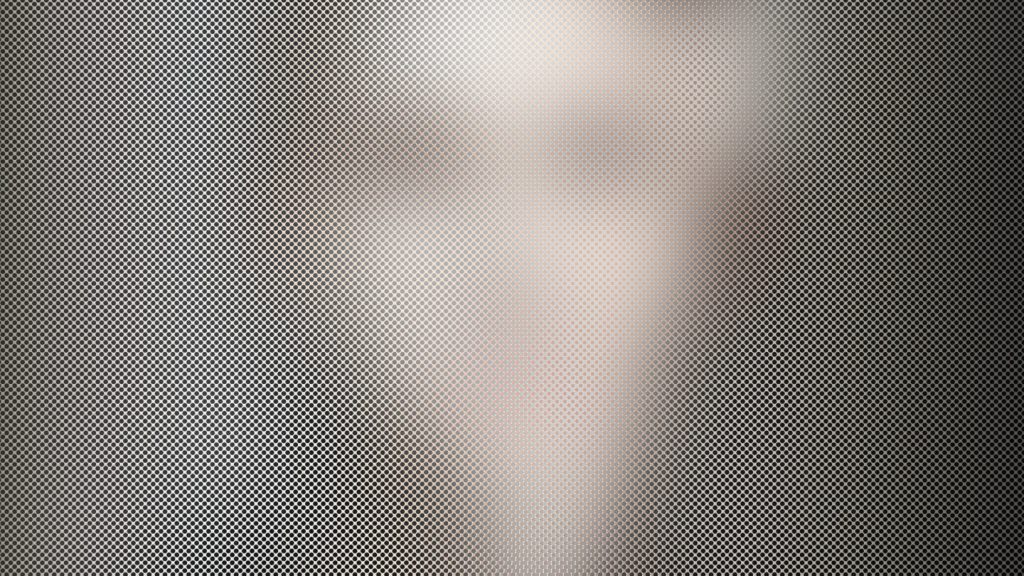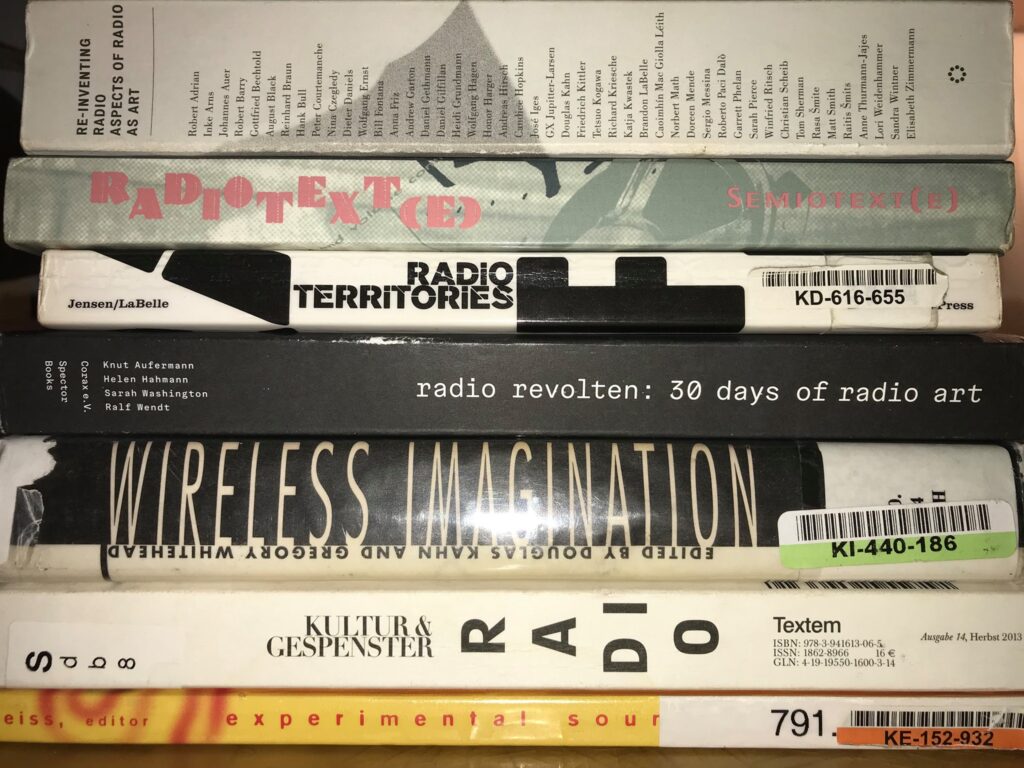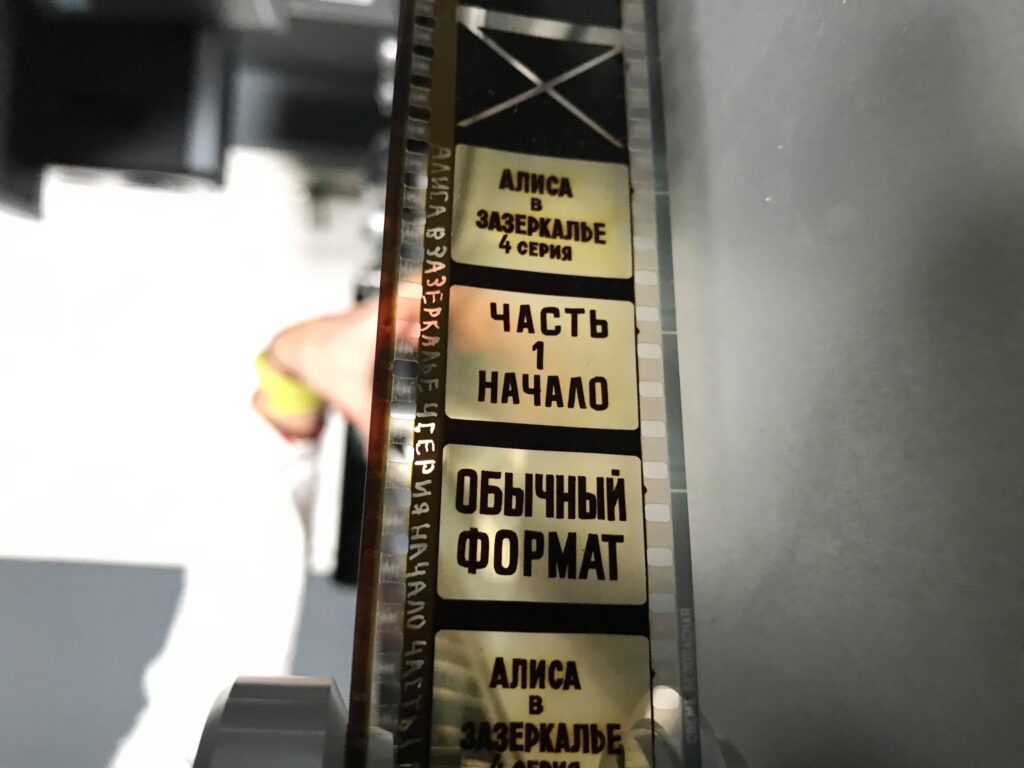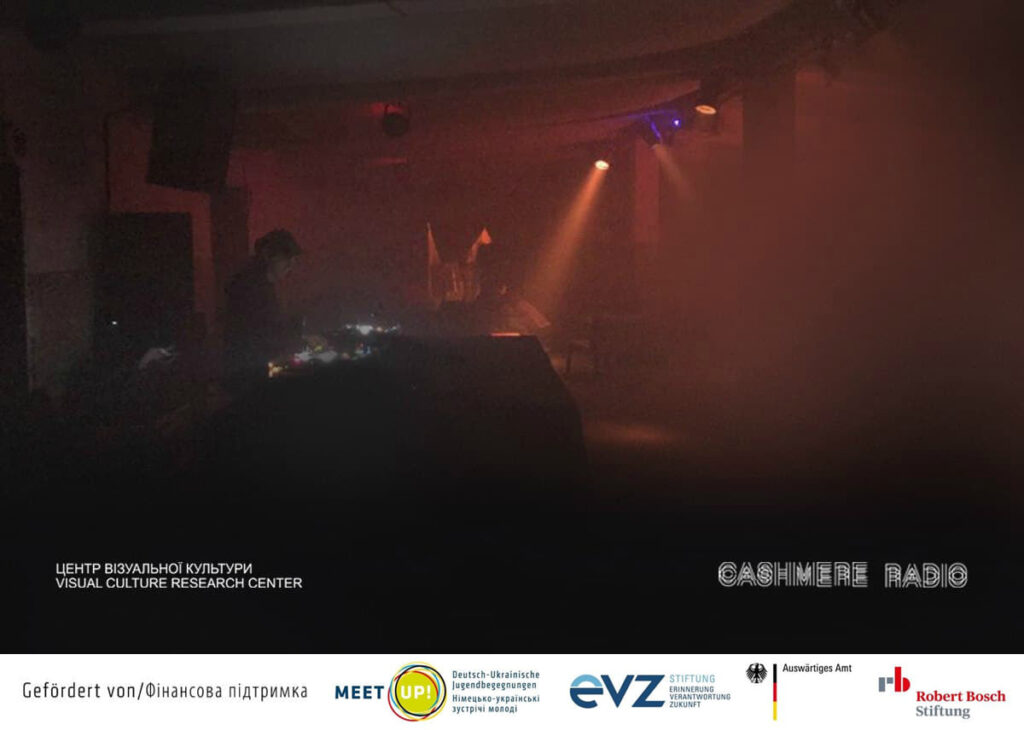The fifth edition of the Kyiv Biennial
The fifth edition of the Kyiv Biennial will take place across Europe at locations in Kyiv, Ivano-Frankivsk, Uzhhorod, Berlin, Warsaw, Lublin, Antwerp and Vienna as the main exhibition venue. In view of the brutal Russian attack on Ukraine, a comprehensive biennial project in Kyiv long seemed deeply uncertain, if not impossible. But, with a cascade of openings—starting in Kyiv in October 2023, finishing in Berlin in 2024—the fifth Kyiv Biennial will be taking place.
This Biennial edition is conceived as a European event, with dispersed exhibitions and public programs in a number of Ukrainian and EU cities, and realized in partnership with leading European institutions in the field of contemporary art.
The project aims to reintegrate the Ukrainian artistic community, divided by war and scattered across Europe, and to enable its actors to work together with international colleagues and partners on the cultural, social and environmental challenges Ukraine is currently facing and to place them in a global context. Artistic images, investigative documentations and institutional practices will be explored with regard to possible exit strategies from the current impasse of war, authoritarianism and colonialism, where the scenarios for a new Ukraine beyond war could even be imagined.
The decentralized European Kyiv Biennial will be an important and at the same time “introductory gesture” that creates bridges and pillars for a long-time relationship with Ukraine on a personal as well as institutional level, which will remain beyond the projects carried out in Autumn 2023.
(Українська) Museum of the Commons
Visual Culture Research Center joins L’Internationale confederation in the project “Museum of the Commons”. The fourth European cooperative project led by L’Internationale, will be focusing on the themes of climate, translocal cooperation, and artistic strategies of healing and repair.
As the confederation’s latest project, “Museum of the Commons” responds to current social and cultural emergencies, Russia’s war against Ukraine and the earthquake along Turkish border, both countries in which we have partners.
L’Internationale, the confederation of major European museums, art institutions, research centres and think-tanks, takes its name from the workers’ anthem calling for an equitable democratic society, and references the historical labour movement. In learning from local and shared histories, L’Internationale focuses on what is to come, in imagining, developing and implementing new visions for a future that will be just, democratic and sustainable for everyone, planetwide.
Over the coming four years, L’Internationale will implement Museum of the Commons (2023–2026), a project granted €2,000,000 by the EU Creative Europe programme. During this period, the confederation will comprise 14 institutions: Museo Reina Sofía (Spain), MACBA (Spain), M HKA (Belgium), MSN (Poland), Salt (Turkey), Van Abbemuseum (the Netherlands), MSU (Croatia), Haus der Kulturen der Welt (Germany), HDK-Valand (Sweden), NCAD (Ireland), ZRC SAZU (Slovenia), Institute for Radical Imagination (Italy), Tranzit.ro (Romania), the Visual Culture Research Center (Ukraine), and two associate partners, IMMA (Ireland) and WIELS (Belgium), along with the L’Internationale Association.
Museum of the Commons weaves together three transversal thematic threads corresponding to key challenges contemporary societies are facing: 1) Climate; 2) Situated Organisations; and 3) Past in the Present. The Climate thread tackles issues of the current planetary climate crisis, the sustainability of institutional, artistic and cultural practices and processes, and the urgency of transforming more ecologically our politics, societies, cultures and ways of life. The Situated Organisations thread queries the role of museums and art organisations as actors in complex social networks and ecosystems, to seek new ways of democratising institutions and to render them more open, inclusive and useful. The final thread, Past in the Present, focuses on the crucial roles our local and shared histories hold in constituting contemporary identities, politics, societies and cultures, investigating the persistence and long-lasting impact of historical and current environmental and colonial violence, including Russia’s war against Ukraine and the crisis along the Turkish-Syrian border. In doing so, the confederation seeks to mobilise art and culture as strategic tools in processes of healing, reconstruction and repair of damage that has been inflicted.
These thematic threads will guide the content of L’Internationale activities, from exhibitions to nomadic schools, artist residencies and community workshops. They explore contemporary models of sustainable cultural production and propose frameworks for new forms of cultural co-creation, contributing to environmental, social and artistic transformation. The confederation undertakes multiple actions in directly supporting artists, culture workers and refugees living with the impact of global conflicts, while supporting international solidarity among European institutions and contributing to the future recovery of the cultural sector and of society at large.
L’Internationale partners: Museo Reina Sofía (Spain), MACBA (Spain), M HKA (Belgium), MSN (Poland), Salt (Istanbul, Turkey), Van Abbemuseum (the Netherlands), MSU (Croatia), Haus der Kulturen der Welt (Germany), HDK-Valand (Sweden), NCAD (Ireland), ZRC SAZU (Slovenia), Institute for Radical Imagination (Italy), Tranzit.ro (Romania).
Asocciated partners: IMMA (Ireland), WIELS (Belgium)
Co-funded by the European Union. Views and opinions expressed are however those of the author(s) only and do not necessarily reflect those of the European Union or the European Education and Culture Executive Agency (EACEA). Neither the European Union nor EACEA can be held responsible for them.
MARIUPOLONAISE BY ROSS BIRRELL FEATURING ANNA FEDOROVA
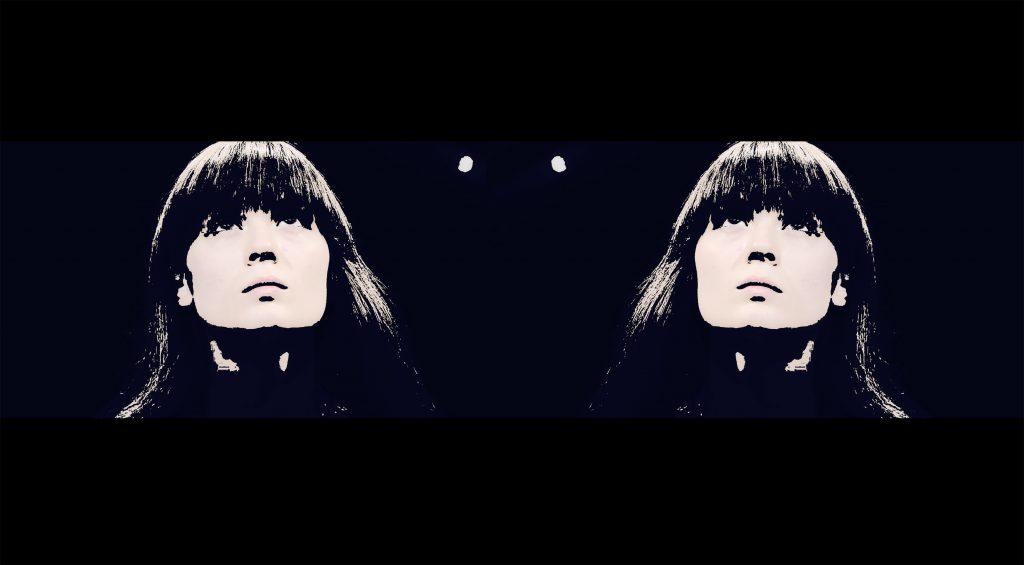
At approximately 10.00am on 16 March 2022, the Russian military conducted an airstrike on the Donetsk Academic Regional Drama Theatre in Mariupol, killing over 600 innocent civilians who were sheltering in the basement, including several children. The word ‘Children’ (Дети) had been clearly drawn in Russian on the ground outside the theatre building. The destruction of the Donetsk Academic Regional Drama Theatre has been classed as a war crime by the Organisation for Security and Co-operation in Europe and Amnesty International.
Six months on from this atrocity, the Visual Culture Research Center, Kyiv, the Museum of Modern Art, Warsaw, the Stedelijk Museum, Amsterdam, and the Scottish National Gallery of Modern Art, Edinburgh, present the film Mariupolonaise (2022; Dur. 12min) by Scottish artists, Ross Birrell. The moving-image and sound work is based upon recordings of the Ukrainian pianist Anna Fedorova’s recitals at the Fryderyk Chopin Institute in Warsaw in 2010. The work is made in response to the emotional impact of Fedorova’s original performance and seeks to explore how the intensity of music and the moving-image might resonate with conditions endured in a time of war, in the wake of the Russian invasion of Ukraine on 24 February 2022. The film is dedicated to the600 victims of the Russian airstrike on the Donetsk Academic Regional Drama Theatre in Mariupol, an atrocity which was met with shock and condemnation across the world.
The film will be screened online from 10.00am local time by each collaborating institution on Friday 16 September 2022.
Watch the video here.
Visual Culture Research Center, Kyiv
Scottish National Gallery of Modern Art, Edinburgh
Anna Fedorova is a renowned pianist who was born in Kyiv and now lives in Amsterdam. She has recently performed Chopin’s Piano Concerto No. 2 with the Ukrainian Freedom Orchestra at Teatr Wielki-Polish National Opera, Warsaw, BBC Proms Albert Hall, London, the 75th Edinburgh International Festival, and the Metropolitan Opera House in New York.
Ross Birrell is Professor and Senior Researcher at The Glasgow School of Art. He has exhibited internationally including at Gwangju Biennale, Kunsthalle Basel, and documenta 14. He is represented by Ellen de Bruijne, Projects, Amsterdam.
The Reconstruction of Ukraine: Ruination / Representation / Solidarity
Over 40 expert Ukrainian and international speakers–architects, artists, historians, economists, poets and others–will gather this September to discuss Ukraine’s past, present and future in light of Russia’s ongoing invasion. The overall theme of the conversation will be reconstruction: broadly-conceived to refer to the rebuilding of architecture and infrastructure, but also of institutions, social bonds, individual and collective bodies and minds. The symposium is organized by a network of institutions, including the Centre for Urban History in Lviv, Urban Forms Center in Kharkiv, Kyiv Biennial / Visual Culture Research Center, ReStart Ukraine, University College London, and Yale University. The symposium will take place virtually over the course of three days from September 9−11.The official website for the symposium, along with more information about the event, can be found here: https://reconstruct.in.ua/. To register, please follow this link. Accompanying links to the symposium’s Instagram and Telegram channels can be found here.
The round table discussions held over each of the three days will range from housing, preservation, masterplanning, the political and economic challenges of reconstruction, the impact of gendered and sexual violence, remediation of the country’s psychological trauma, among many other subjects.
ARMED DEMOCRACY
July 1 – 9, 2022, 18:00 CEST, Online
Russia’s full-scale invasion of Ukraine, which put its people under mass physical and political extermination, has forced the European continent to question the very foundations of the institutional order it had been based on since the end of World War II. In the situation, when not just the future but the very present of Europe at large has appeared under direct existential threat from the Russian fascism, all the basic categories that the post-Nazi world relied on, such as democracy and authoritarianism, historicism and neocolonialism, pacifism and demonstration of protest, require a profound revision and change. The system of ideological coordinates as well as the outlines of the political spectrum we have been used to operate in are to be rearranged to tackle a new catastrophic reality.
The fundamental difference that we face in Europe at the moment between the Western approach characterized by the pursuit of peace and the Eastern one focused on liberation and independence poses a dramatic challenge – in order to survive and progress, democracy as a political regime has to be capable of defending itself also in a military way. What changes does it bring to the idea of the nation-state and the principles of internationalism? How will the notions and practices of citizenship, rule of law and human rights and freedoms be altered? In what way does it affect an economic apparatus and constitute the modus vivendi of our societies anew? How could a new political paradigm be safeguarded against imperialist and fascist misuse to prevent political and military violence by the strong against the weak?
Conceived by the Kyiv Biennial and Biennale Warszawa from the East Europe Biennial Alliance, this special public program Armed Democracy, curated by Vasyl Cherepanyn within the 2nd edition of Biennale Warszawa, revolves around the concepts of imperialism, liberation, fascism, autocracy, revolution, and militarization in pursuit of the world to come on Europe’s burnt out land. The program is a first part of the series organized by the East Europe Biennial Alliance discussing Russia’s military invasion of Ukraine and taking place in Warsaw, Prague, Kassel, and Riga over the summer and fall of 2022.
ESI – Emergency Support Initiative
Since the first days of Russia’s full-scale war against Ukraine, the Visual Culture Research Center/Kyiv Biennial has launched the Emergency Support Initiative for the members of the artistic and cultural community in Ukraine finding themselves in need. Its main goal is to support people remaining in the country and to provide them with immediate financial relief under the conditions of occupation and/or relocation.
Please find more info here: esi.kyivbiennial.org
Allied – Kyiv Biennial 2021
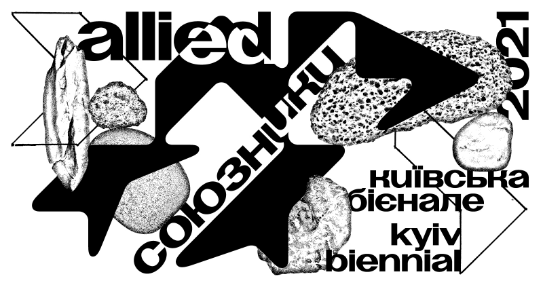
The fourth edition of the Kyiv Biennial, an international forum for art, knowledge and politics that integrates exhibitions and discussion platforms, will take place from October 16th to November 14th 2021. The upcoming edition – Allied – emphasizes cross-border collaboration and is jointly curated by members of the East Europe Biennial Alliance: Biennale Matter of Art Prague, Biennale Warszawa, Kyiv Biennial, OFF-Biennale Budapest and Survival Kit Festival Riga.
The diverse biennial program will address various historical forms and contemporary examples of cultural and political alliances in Eastern Europe and beyond and their ability to create new social formats. Allied – Kyiv Biennial 2021 will present a series of art projects and educational events particularly focusing on the current conditions, political factors, and institutional actors that foster new alliances in the 21st century. Once again, the Kyiv Biennial will explore the architectural context of the city and the residuals of Soviet modernism – the main location of this year’s edition will be the House of Cinema.
The Kyiv Biennial is organized by the Visual Culture Research Center. Previous editions explored the emancipatory potential of the idea of the political International, and the political and cultural role of modern information technologies as well as social transformations that have happened in Eastern Europe over the past three decades.
East Europe Biennial Alliance was established in 2019 in order to propose new forms of international solidarity, expanding socio-political imagination and alternative cultural solutions. Through connecting aesthetics and politics, the Alliance constructs a different narrative of the East European region and redefines the way cultural institutions collaborate.
Address: The House of Cinema, 6 Saksahanskoho St.
Admission to all events will be free of charge.
The project is supported by ERSTE Foundation, Foundation for Arts Initiatives, Ministry of Culture of the Czech Republic, Prince Claus Fund, State Cultural Fund of the Czech Republic, Sigrid Rausing Trust, and Ukrainian Cultural Foundation.

Lecture by Matteo Spanò “Notes on Radical Radio”
Today, both in Europe and globally, the project of alternative information and communication, one that is positioned aside of mass media and social media alike – and beyond the power relationships and cultural values they respectively engender – acquires new relevance. Distributed production, decentralized organisation and collective participation can be, and have been, powerful driving factors for many instances of radical discourse and action. The question then is how these instances come to be mediated today, and whether an “old” medium such as radio can be reconfigured and alternatively employed – through a new, common understanding of its languages and possibilities – to bring about a change within the media landscape, a “third way” towards more free and open means and spaces for communicating together.
Matteo Spanò is a researcher, musician and radio maker. His work focuses on experimental radio practice, visual poetry and sound poetry. He holds a B.A. in Electroacoustic Composition from the Paganini Conservatory, Genoa and an M.A. in Sound Studies from the UdK, Berlin. He is co-founder and deputy chairman of Cashmere Radio. Together with the electro-acoustic orchestra Galata he participated in the 58th Biennale Musica in Venice. His works have been broadcast on Cashmere Radio, Deutschlandradio Kultur, Radiophrenia, WMFU, Resonance FM, among others. He is currently a doctoral candidate at the UdK – Sound Studies with a research project on Radio Alice and free radio culture.
The event will take place on December 8 at 12:00 live, the video broadcast will be available on the Facebook page of Visual Culture Research Center.
Organized by Cashmere Radio (Berlin, Germany) and Visual Culture Research Center (Kyiv, Ukraine).
The lecture will take place as part of the second part of the residency of electronic music “Nachtkultur/Нічна культура”. The project was implemented within the “MEET UP! German-Ukrainian Youth Encounters” programme with support from the Foundation “Remembrance, Responsibility and Future” (EVZ). The opinions expressed by the authors are not necessarily those of the Foundation EVZ. The author is solely responsible for the content.
Lecture by Dmytro Nikolaienko “Working with Musical Archives”
With the renaissance of the vinyl format in the last decade, the archive / reissue label phenomenon has emerged. Soundtracks marked “first time on vinyl” or “never heard before”, rare library music, works of unknown music amateurs and so-called “bedroom producers” – all this today finds a new breath in the music world.
In the early 10s, a group of enthusiasts asked themselves: Why is there no label in Ukraine that deals with local musical archeology? In response, after six years of preparation, the ‘Shukai’ Archive Record Label was founded in 2018. It focuses on the revival of tapes made by outsider composers between 1960 and 1991, also for films and television, but which were forgotten or have not even been heard by anyone. The lecturer seeks to lift the veil over the process of working with archives, not least by formulating problems that hinder its implementation. It is also proposed to consider why preserving the musical heritage of Soviet Ukraine is important.
The event will take place on December 5 at 12:00 live, the video broadcast will be available on the Facebook page of Visual Culture Research Center.
Dmytro Nikolaienko is a Ukrainian sound-artist currently based in Tallinn, Estonia. Nikolaienko works mainly with outdated musical gear which he uses to produce tape and cassette loops as a base material for his sound collages. At the same time, Dmytro is also a founder of Muscut and Shukai labels which focus on pseudo and practical audio archaeology.
Organized by Cashmere Radio (Berlin, Germany) and Visual Culture Research Center (Kyiv, Ukraine).
The lecture will take place as part of the second part of the residency of electronic music “Nachtkultur/Нічна культура”. The project was implemented within the “MEET UP! German-Ukrainian Youth Encounters” programme with support from the Foundation “Remembrance, Responsibility and Future” (EVZ). The opinions expressed by the authors are not necessarily those of the Foundation EVZ. The author is solely responsible for the content.
Residency of Electronic Music “Nachtkultur/Нічна культура”. Second Part
November 23 – December 13, 2020
The second part of the Residency of Electronic Music “Nachtkultur / Нічна культура” has started. The aim of the project is to establish intercultural dialogue and engage young people in social action. The residency first took place in July 2019.
The global pandemic, against the backdrop of a political and economic crisis, has affected all spheres of life. Night culture, which only yesterday was proclaimed the most progressive, today has received the status of illegal and is under threat of extinction. The activities of independent cultural organizations were terminated, international cultural ties were interrupted, and a lack of understanding of the problems and values of the cultural sphere, as well as the lack of support from the state, confronts us with the question of whether an electronic music scene can survive COVID-19.
Given such negative socio-political circumstances, the priority of the second part of the residency of electronic music “Nachtkultur / Нічна культура” is to create conditions for continued international communication and cooperation. First of all, the format of the residency makes it possible to consider the state of emergency and try to jointly look for potential ways out of it.
For three weeks, twelve representatives of German and Ukrainian night culture will meet with the help of digital technologies, being in organized studios in Kyiv and Berlin. The residency will be accompanied by practical and theoretical seminars conducted by invited professionals, as well as a public series of radio programs created by the participants.
Organized by Cashmere Radio (Berlin, Germany) and Visual Culture Research Center (Kyiv, Ukraine)
Team: Lukas Grundmann, Kateryna Nikolenko, Nazarii Sovsun
The project was implemented within the “MEET UP! German-Ukrainian Youth Encounters” programme with support from the Foundation “Remembrance, Responsibility and Future” (EVZ). The opinions expressed by the authors are not necessarily those of the Foundation EVZ. The author is solely responsible for the content.

